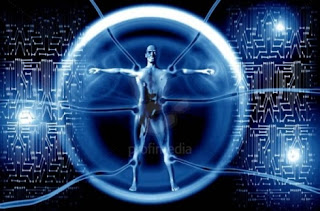Have you ever thought about how social media sites such as
Facebook use Artificial Intelligence? Any time you click on any link on social
media, the site collects your information to find out what your interests are.
When you create an account on any site, they collect information about you to
use later. In fact, some sites might sell your information to make money.
Facebook is a site that not only allows you to connect with
others, but also collects information about every post that you like, the
things you post, the messages you send, etc. Thousands of users go on every day
without even realizing how much information Facebook learns about you each time.
If you were to contact the company and ask them to send you everything they
know, you would be surprised at how much information they can get just from looking
at your profile.
In his article, “Facebook Is Already Using Its Artificial
Intelligence On You,” Mark Zuckerberg talks about how Facebook affects your
whole life. The knowledge that Facebook uses Artificial Intelligence to track
your preferences impacts your relationship with that platform by showing you
things you may like. “The social network is able to recognize patterns in how
you interact with things and deliver content in response,” (par 2). Everything
you do on Facebook is controlled by Artificial Intelligence. The system keeps
track of what you do on the site or the app and uses that information to
suggest different things that you may like. Even though Facebook takes over
your life, there are thousands of users who login every day without even
realizing what information it is collecting.
Facebook is not the only Social Media outlet that implements the
tracking system. Google is another example of a site that collects your
information. In her article, “Everything Google knows about you (and how it
knows it),” Caitlin Dewey starts of by mentioning what Google knows about her.
Dewey wrote that “according to Google, [she is] a woman between the ages of 25
and 34 who speaks English as her primary language and has accumulated an
unwieldy 74,486 e-mail in her life,” (par 1). She also mentions that Google
knows a lot more than she thought and that “[she] didn’t tell Google any of
these things intentionally…But even as you search Google, it turns out, Google
is also searching you,” (par 2). Back in 2009, Google established what is
called Dashboard so that users would easily be able to access the kinds of data
the Internet has about them and where the information is from. One of the users
of Google said that the site knows about every place they have been every
single day for years. The user also mentioned that they “‘…find it very
interesting, but it’s also very scary because [they] don’t doubt it’s possible
to hold this information against [them at some point,’” (par 8). Dewey mentions
that the scary part of it is that the information that we get from Google is
stored forever in one place. No matter what site you are on, there is always
information that is going to be collected from you regardless of whether or not
you have filled out some kind of profile or some kind of form. Websites are
constantly learning about you regardless of whether or not you are aware of it.
The sites you go on will keep the information they find out about you forever.
This reality that websites
learn so much about you aligns itself with the argument that we are already
functioning as Post-Human individuals because any website you go on today uses
some kind of Artificial Intelligence. Each time you click, post, message, etc.,
the Internet is always collecting your information. As technology advances,
people become more and more reliant and technology. Because we are constantly
having advances in technology, we function as a Post-Human. The Internet uses
Artificial Intelligence to collect Information about us while we are unaware of
it.
Facebook is a network between humans and Artificial
Intelligence. Although Facebook allows so many people to connect to each other,
the use of Artificial Intelligence to collect information about all of it users
leads them to making more money.
In his article “5 Very Smart
People Who Think Artificial Intelligence Could Bring the Apocalypse,” Victor
Luckerson talks about the different views people have about Artificial
Intelligence.
Stephen Hawking, a
world-renowned physicist, believes that “‘the development of full artificial
intelligence could [lead to] the end of the human race,” (par 2).
Elon Musk, who is “known for his
businesses on the cutting edge of tech,” (par 3), believes that artificial
intelligence is a threat to humankind.
Nick Bostrom, a Swedish
philosopher, spent so much time thinking about the outcomes of singularity. “In
his new book Superintelligence, Bostrom
argues that once machines surpass human intellect, they could mobilize and
decide to eradicate humans extremely quickly using any number of strategies
(deploying unseen pathogens, recruiting humans to their side or simple brute
force,” (par 4).
James Barrat, a writer and
documentarian, “…argues that intelligent beings are innately driven towards
gathering resources and achieving goals, which would inevitably put a
super-smart AI in competition with humans, the greatest resource hogs Earth has
ever known,” (par 5).
Vernor Vinge, a mathematician
and fiction writer, “…views the singularity as an inevitability, even if
international rules emerge controlling the development of AI,” (par 6).
I think that we get closer to
Vernor Vinge’s Inflection point as technology advances. The more we progress in
technology, the more will be able to develop better AI machines. Once we hit
the moment of singularity, there is a possibility that it may lead to the
extinction of the entire human race.














